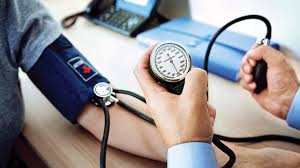Source: dnaindia.com
So, you just found out that you have borderline blood pressure. You immediately visit a doctor for a check-up, only to find out that your blood pressure is normal. You go back home relaxed and quite assured that you do not run the risk of getting high blood pressure, or hypertension. However, experts suggest that your normal blood pressure might not necessarily mean that you do not have hypertension.
Medical experts suggest that masked hypertension and white coat hypertension are two major factors that affect early detection of hypertension in patients, resulting in an unnecessary delay in initiation of treatment for the condition. If hypertension is not detected and treated, it could affect other organs in the body and cause grave damage.
Masked hypertension is defined as a condition in which a person has normal blood pressure in the doctors’ clinic, but might suffer from high blood pressure at home or office. On the contrary, white coat hypertension, also known as white coat syndrome, is a phenomenon in which a person exhibits a blood pressure level above the normal range in a doctor’s clinic or hospital.
A pharmacologist, on condition of anonymity, said the biggest problem in the management of hypertension in India is misdiagnosis and missed diagnosis. He added that several doctors use the older mercury devices for measuring blood pressure and many of these devices are not calibrated properly.
A diabetologist, Sanjeev Phatak, told DNA that stress level is different for a person in different settings and therefore, it is essential that apart from the clinic, the person’s blood pressure is also monitored at home and office. “If a patient comes to us with a blood pressure above 200 mmHg, then he needs to be treated immediately, but for borderline patients, multiple readings need to be taken,” he said.
Another medical practitioner, Dharmendra Panchal, said it is better to go for 24-hours ambulatory blood pressure monitoring (ABPM) for borderline blood pressure patients which will help in getting the real picture and the fluctuations in blood pressure throughout the day. Panchal explained that a small device is tied to the hand in ABPM and a person can follow his normal routine. As per the required settings, the device will continue to take blood pressure readings throughout the day and also during sleep.
Meanwhile, Phatak said in developed countries like the UK, 24-hour ABPM is mandatory before initiating any treatment for hypertension, but it is difficult to implement such guidelines in India.
MASKED TENSIONS
Medical experts suggest that masked hypertension & white coat hypertension are two major factors that affect early detection of hypertension in patients, resulting in an unnecessary delay in initiation of treatment for the condition
